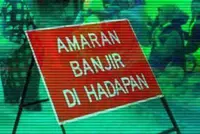KUALA LUMPUR: Several telecommunication companies will be blocking the ability to send or receive URLs through the short message service (SMS) from Tuesday (May 2).
An officer from the Communications and Digital Ministry confirmed with Sin Chew Daily that Maxis, Celcom, Digi and U-Mobile would start imposing the block on Tuesday.
Already a subscriber? Log in
Save 30% OFF The Star Digital Access
Cancel anytime. Ad-free. Unlimited access with perks.





